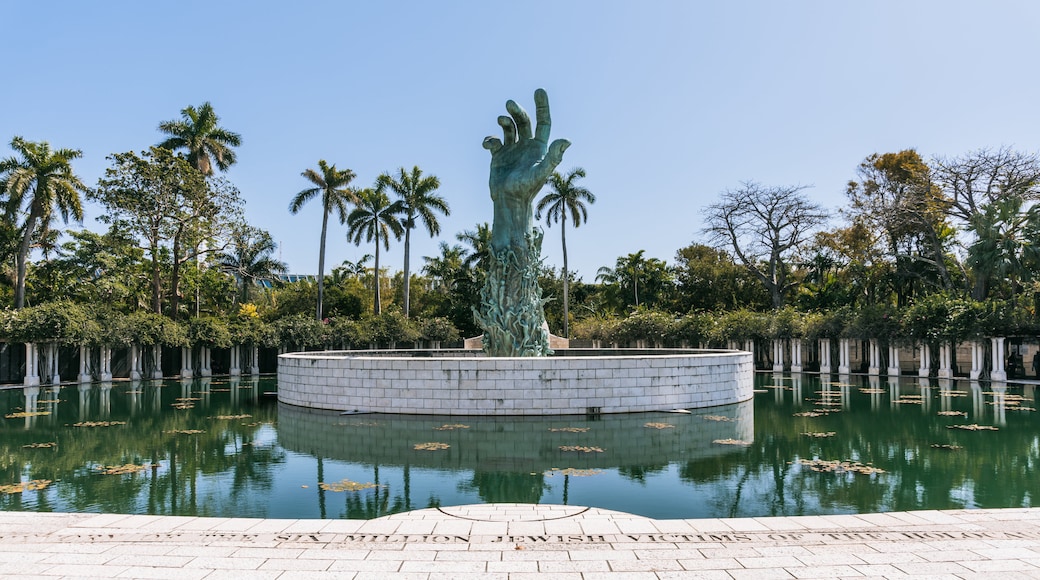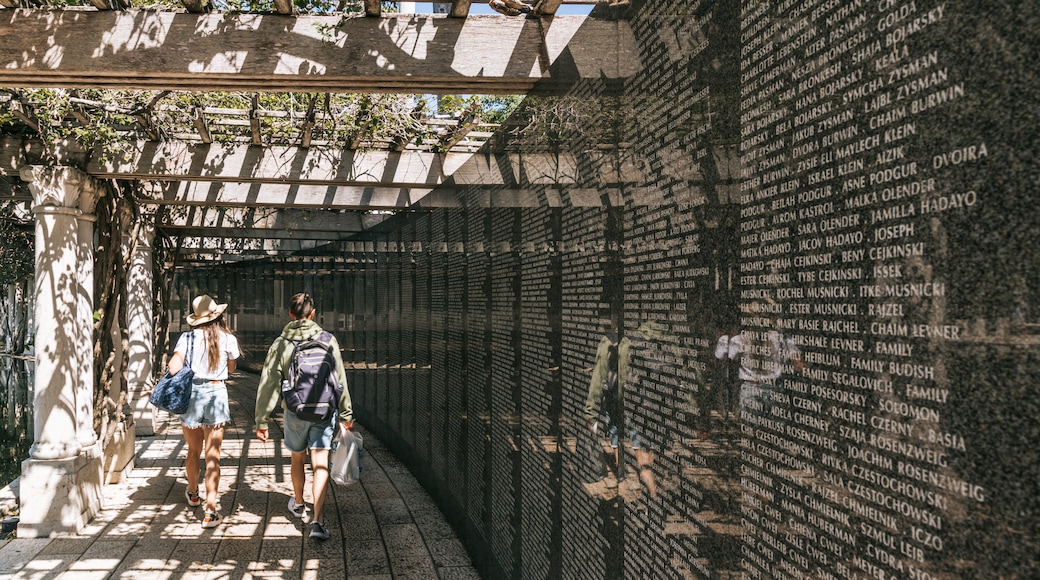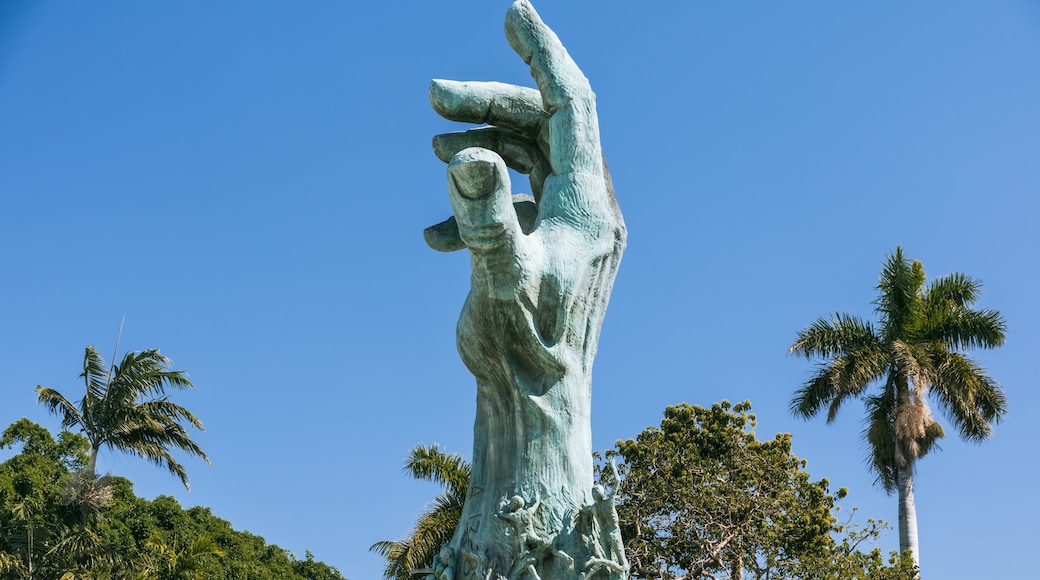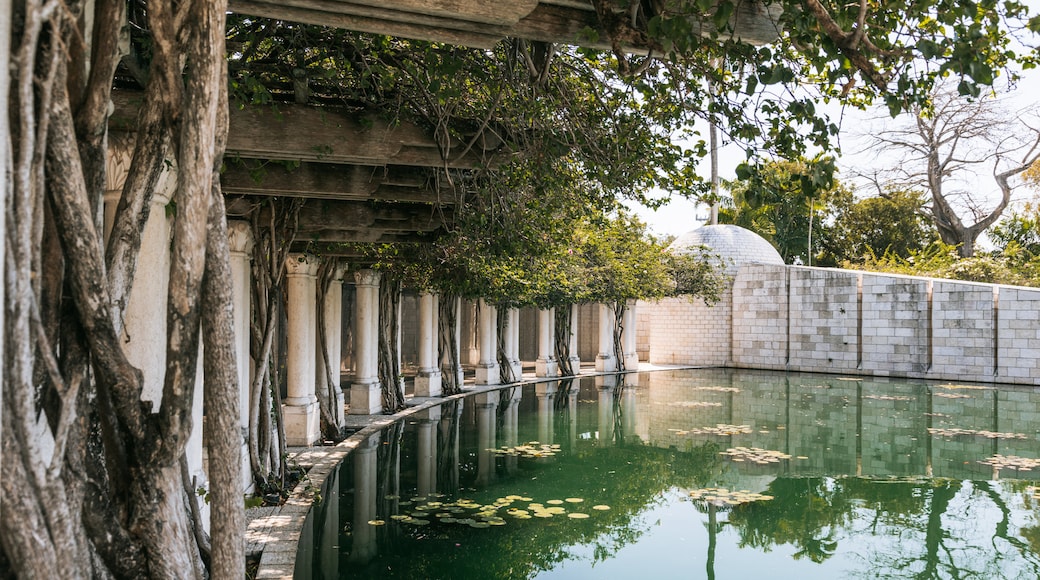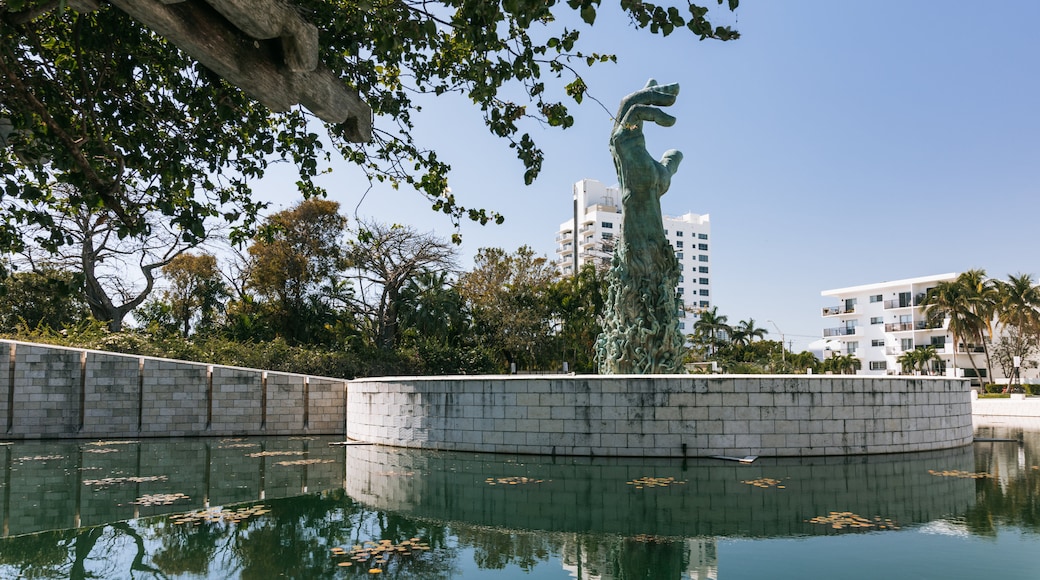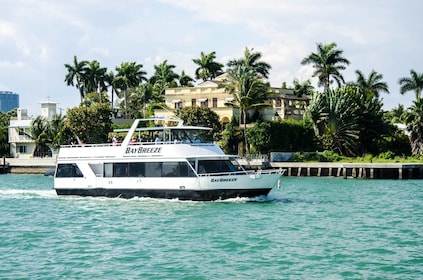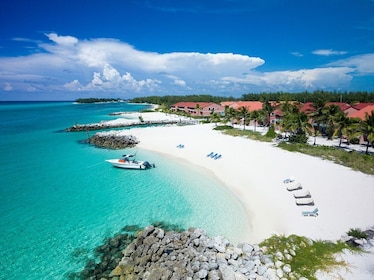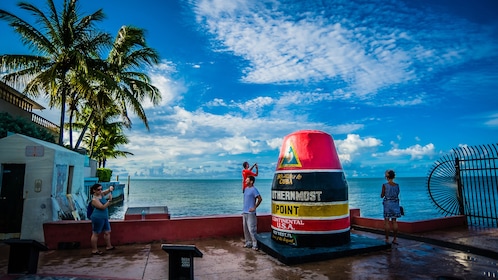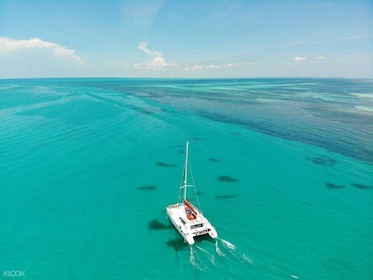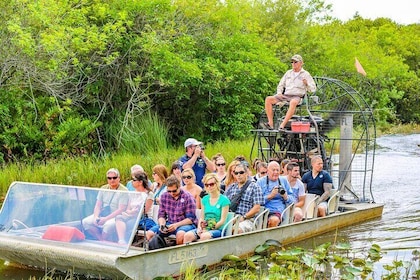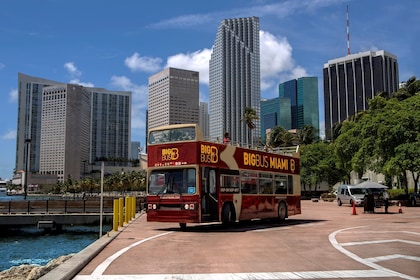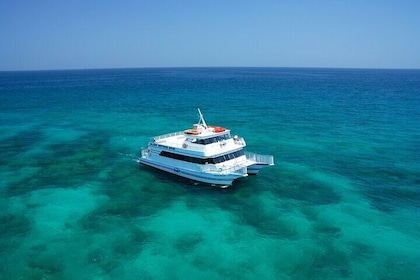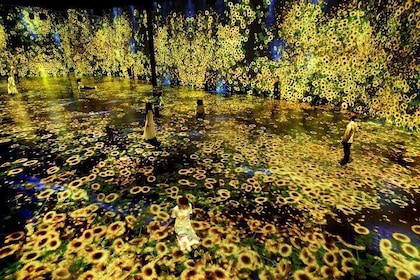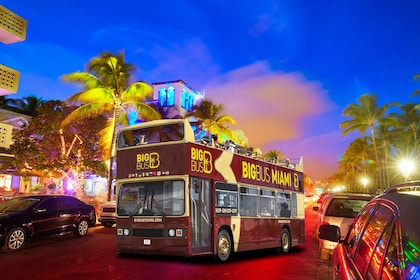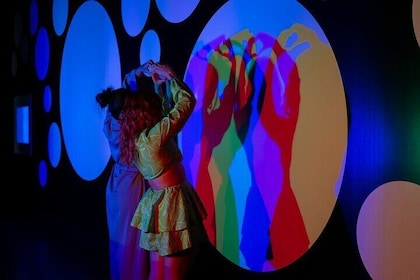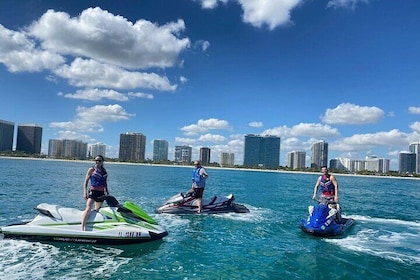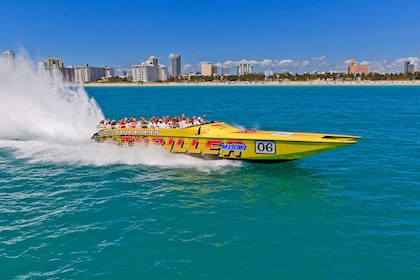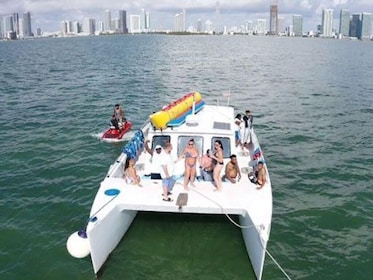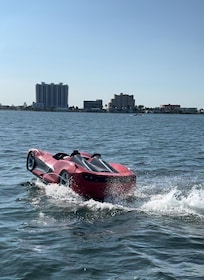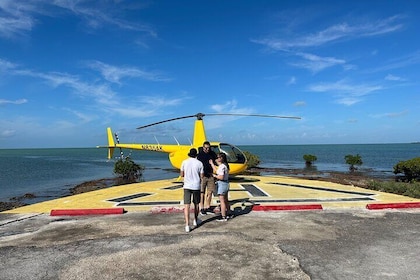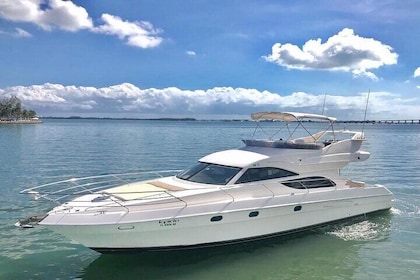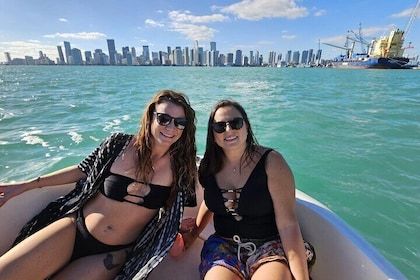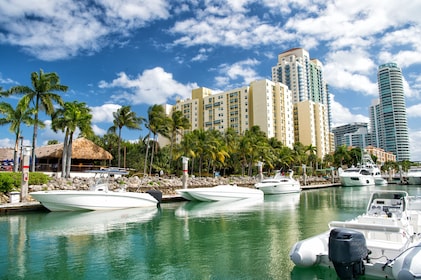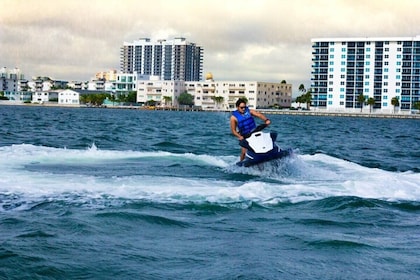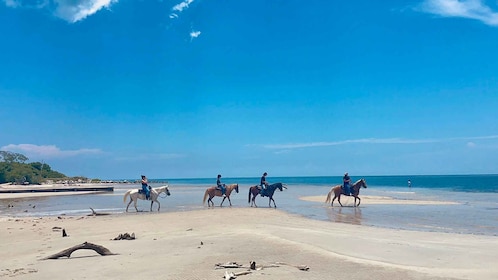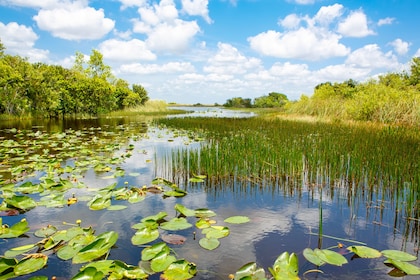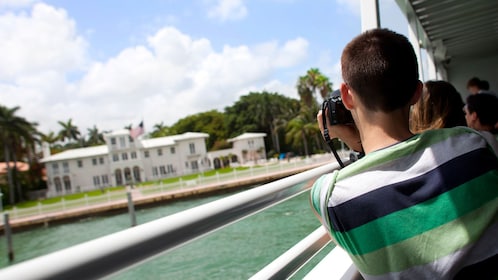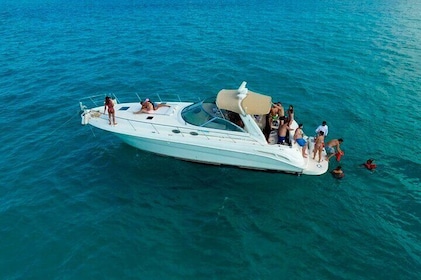Miami Beach’s thought-provoking Holocaust Memorial is a tribute and open park dedicated to the memory and legacy of the 6 million Jews killed during World War II. Visit the Holocaust Memorial to see a series of heartfelt sculptures and educational monuments in a quiet, commemorative space in the heart of Miami Beach.
Enter the Holocaust Memorial at the Collins Canal Bridge to see the park’s most distinctive feature, the Sculpture of Love and Anguish. This 42-foot (12.8-meter) bronze sculpture depicts an outstretched hand, reaching for the sky from a sunken island within a tranquil pool of water. Masses of desperate, emaciated human figures cling to the giant arm. If you look closely, you can see the Auschwitz Concentration Camp serial number tattooed on the wrist.
Wander along the walls of the island to see small engravings and read historical accounts from the Holocaust. Explore the park’s 11 dedicated areas and take in other monuments and sculptures such as the Arbor History, the Garden of Meditation, the Lonely Path and the Memorial Wall. Visit the Information Booth to speak with the memorial’s attendant to learn about the park and its historical significance. Take a self-guided tour with the assistance of the Holocaust Memorial brochure. Visit the monumental Memorial Wall, a slab of black granite that lists the names of thousands of people who perished during the Holocaust.
Kenneth Treister, architect of the Holocaust Memorial, designed the space in collaboration with a group of Holocaust survivors, the Holocaust Memorial Committee. Explore the Holocaust Memorial to understand the park’s contrasting elements. Still reflection pools and lush green areas make for quiet, contemplative spaces in which to reflect on the horrors of the Holocaust.
The Holocaust Memorial is free to enter and is open daily until sunset. Explore the memorial’s open, sunny areas but ensure you bring sun protection and some water. Head next door to the Miami Beach Botanical Garden and have a picnic in the grounds.
